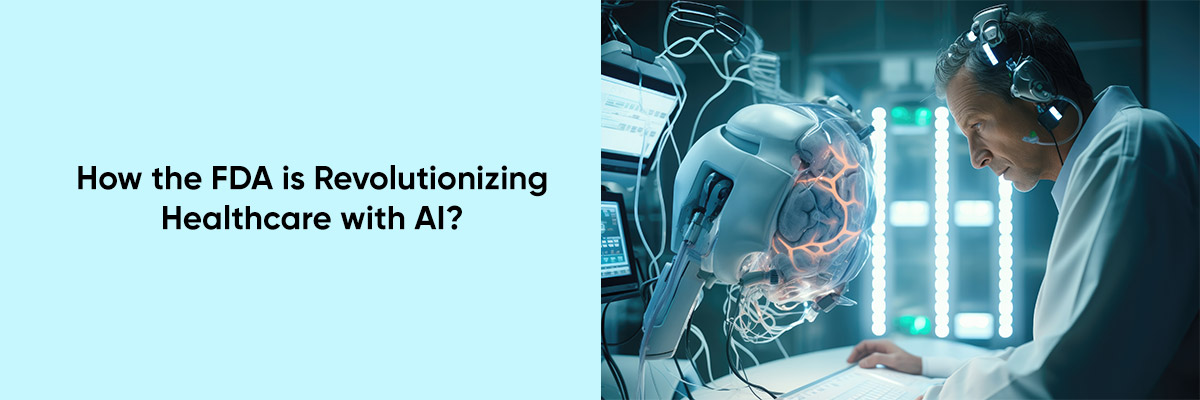The U.S. Food and Drug Administration (FDA) has been at the forefront of healthcare regulation for decades, ensuring the safety and efficacy of drugs, medical devices, and other products that impact public health. In recent years, the FDA has increasingly embraced artificial intelligence (AI) as a transformative technology with the potential to revolutionize healthcare.



From streamlining drug development to enhancing diagnostic tools, AI is reshaping the landscape of medical innovation, and the FDA is playing a crucial role in this transformation.
1. Accelerating Drug Development
One of the most promising applications of AI in healthcare is in the realm of drug development. The traditional process of bringing a new drug to market is time-consuming and costly, often taking over a decade and billions of dollars. AI has the potential to dramatically accelerate this process by analyzing vast datasets to identify potential drug candidates more quickly and efficiently.
The FDA has been supportive of these advancements, offering guidance and frameworks for the integration of AI in clinical trials and drug development. For instance, AI can be used to predict patient responses to new treatments, optimize trial designs, and identify biomarkers that can be targeted by new therapies. This not only speeds up the process but also increases the likelihood of success, as AI can help pinpoint the most promising compounds early in the development cycle.
2. Enhancing Diagnostics and Personalized Medicine
AI is also making significant strides in diagnostics, particularly in imaging and pathology. Machine learning algorithms can analyze medical images with a level of accuracy that rivals or even surpasses human experts. This has enormous implications for early detection and treatment of diseases like cancer, where timely diagnosis can be critical.
The FDA has been proactive in approving AI-driven diagnostic tools, recognizing their potential to improve patient outcomes. For example, the FDA has cleared AI systems for the detection of diabetic retinopathy, a condition that can lead to blindness if not treated early. These AI tools can provide rapid and accurate diagnoses, enabling timely intervention.
Moreover, AI is a cornerstone of personalized medicine, which aims to tailor treatments to individual patients based on their genetic, environmental, and lifestyle factors. The FDA is facilitating this shift by developing regulatory frameworks that support the use of AI in genomics and other personalized medicine applications. This enables the development of targeted therapies that can be more effective and have fewer side effects compared to traditional one-size-fits-all treatments.
3. Improving Regulatory Efficiency
The FDA itself is leveraging AI to improve its regulatory processes. The agency handles an enormous amount of data, from clinical trial results to adverse event reports. AI can help streamline these processes by automating data analysis and identifying patterns that may require regulatory action. This allows the FDA to respond more quickly to emerging public health issues and ensure that safe and effective products reach the market faster.
For example, the FDA’s Sentinel System uses AI to monitor the safety of medical products in real time. By analyzing electronic health records and other data sources, the system can detect potential safety issues more quickly than traditional methods. This proactive approach helps protect public health and ensures that patients have access to safe and effective treatments.
4. Challenges
While the potential of AI in healthcare is immense, it also presents challenges. Ensuring the accuracy and reliability of AI algorithms is paramount, as errors can have serious consequences for patient safety. The FDA is addressing these challenges by developing rigorous evaluation and monitoring processes for AI-based products.
Another challenge is the integration of AI into clinical practice. Healthcare providers need training and support to effectively use these new tools, and the FDA is working with stakeholders to facilitate this transition. Additionally, issues related to data privacy and security must be carefully managed, particularly as AI systems often require access to sensitive patient information.
Conclusion
The FDA’s embrace of AI is revolutionizing healthcare in numerous ways, from speeding up drug development to enhancing diagnostics and personalized medicine. By providing guidance, regulatory frameworks, and support for innovation, the FDA is helping to unlock the full potential of AI in healthcare. While challenges remain, the agency’s proactive approach ensures that these new technologies are developed and deployed in a way that maximizes benefits for patients while minimizing risks. As AI continues to evolve, the FDA’s role will be crucial in guiding this transformation and ensuring that the promise of AI is fully realized in the healthcare sector.


